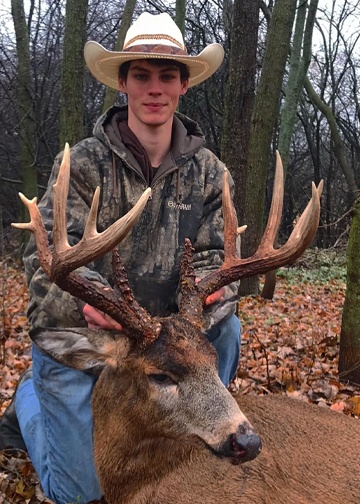
Forrest Fay
Caesar Kleberg Wildlife Research Institute
Rangeland and Wildlife Management. Effects of Patch Burning on Nearest-Neighbor Relationships and Species Composition in Grazed Southern Teas’ Coastal Prairie
For the first 18 years of my life I was raised on a farm in northern Illinois. Understanding where the food on our plates came from was engrained in me from a young age. Not only the meat directly from wildlife and livestock, but comprehending how that meat came to be. Land management is the basis for wildlife and livestock management. Learning to maintain the integrity of the land to not only live off of, but to pass down to our children is our responsibility as land managers. I grew up hunting for just about anything I could. From doves and squirrels in early fall, through the state-wide holiday of the whitetail rut in November, ducks and geese before the waters freeze over, all the way through coyotes and pheasants in the dead of winter, then chasing turkeys in the spring. I always had a bow or gun in my hand. Hunting isn’t just a hobby or a past-time for me. It’s a way of life and I intend on keeping it that way.
I earned my B.S. from Auburn University in Wildlife Ecology and Management in 2018. From there, I moved to Kingsville, Texas to pursue a Master’s degree in Rangeland and Wildlife Management with the Caesar Kleberg Wildlife Research Institute. My career goals include being a ranch manager, so finding a project in land management, especially in Texas, was a must. My research project focuses on how prescribed fire affects Texas’ coastal prairies. Specifically, nearest-neighbor relationships in herbaceous plants. This means I spend a lot of time counting and identifying plants in the field, then get to conduct large prescribed burns (my favorite part), then come back and see how they respond. In between long fieldwork days, school work, renovating a house with my wife, and whatever else may pop up in life, I take every chance I get to be outside hunting or fishing. Texas is a wild country to me, with amazing new opportunities to chase things I’ve never seen or heard of before. I’m loving every minute of it and don’t intend on leaving anytime soon.

